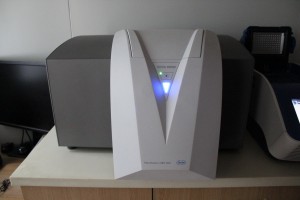
Research
DNA mutations and genetic variants have been shown to play an important role in human diseases and other traits. Notably, these functional genetic variants are not limited to single-nucleotide variants (SNVs). From 1990s, it has become apparent that human diseases and traits can also be explained on the basis of sub-microscopic genomic alterations, i.e. copy number variations (CNVs) and structural variations (SVs). Moreover, human genome architecture can induce genomic structural instability and cause disease traits. These conditions have been referred by a pioneer scientist, Dr. James R. Lupski at Baylor College of Medicine, as genomic disorders. Our current research interests are as follow.
Genetic variants in human diseases and their roles in pathogenesis
- Male infertility, including spermatogenic impairment, sperm flagellar malformations, and etc.
- Female infertility, including premature ovarian insufficiency, Müllerian anomalies, and etc.
- Congenital scoliosis, congenital anomalies of the kidney and urinary tract, and other birth defects.
Animal models of genetic disorders
- Mouse models.
- Genome editing using CRISPR-Cas9 technology.
- Androgenetic haploid embryonic stem cells(AG-haESCs)mediated semi-cloning technology(collaboration with Dr. Jinsong Li at Shanghai Institute of Biochemistry and Cell Biology, Chinese Academy of Science).
CNVs/SVs in human populations
- Genetic structures of CNVs in Chinese populations (collaboration with Prof. Li Jin at Fudan University).
 |
 |
Agilent DNA microarray scanner
|
NimbleGen MS 200
|
Photo by Renqian Du, all copy rights reserved.